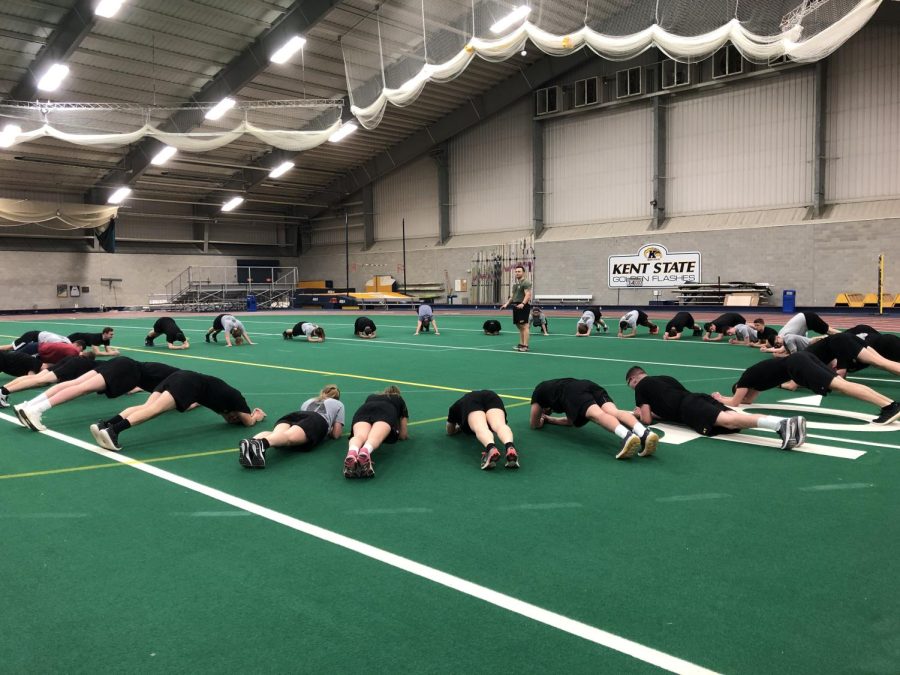Cadets share experiences balancing schoolwork, ROTC
On top of taking a full schedule of courses for their majors, ROTC cadets work hard to complete requirements for the ROTC program. Their days don’t begin like regular college students, though. They wake up before the sun has even risen.
ROTC, or Reserve Officer Training Corps, is training to become an army officer, which requires a bachelor’s degree.
“The reason for having a bachelor’s degree is because it’s a sign that you have organizational and planning skills, which are all tenants of being an army officer,” said Cadet Jared Howard, a senior public health major.
ROTC cadets have physical training four times a week on Monday, Tuesday, Thursday and Friday. Training begins at 6 a.m. and ends around 7 a.m.
While this may sound early to most college students, Cadet Alex Warner, a senior exercise science major, doesn’t mind the schedule.
“It gives me a lot of structure,” Warner said. “It gets me waking up, working out, and it’s good stress relief.”
Physical training is typically held in the field house and consists of activities like stretching, weight lifting, pull-ups, tire flips and sprinting, but the cadets tend to switch it up each day.
“It’s about getting creative with it,” Howard said.
There are a mix of majors throughout the ROTC program. The cadets try to incorporate each person’s knowledge into their daily activities.
“I’ve come in before and talked about weight training and proper form,” Warner said, because of her experience from her exercise science major.
ROTC cadets are also required to attend labs Wednesdays from 7 a.m. to 8:30 a.m.
Labs are student led and include hands-on learning activities such as being assigned to a mission or just learning about important information.
“All the labs that we do are essentially organized and run by cadets,” Howard said. “It helps instill some of those planning skills that they need in order to be a successful officer.”
Students can join the ROTC program without the desire to serve after graduation.
“ROTC is not a military course,” said Cadet Jonah Kearns, a senior aeronautics major. “ROTC is a leadership course and for the first two years there is no obligation to the military attached to registering for the classes.”
For cadets who are contracting, meaning they have signed an agreement to serve after graduation, ROTC offers many financial benefits.
“Contracting cadets also receive a monthly stipend,” Howard said. “On top of my part-time job, I also am paid $500 a month from ROTC.”
Aside from the financial benefits of joining ROTC, Howard said contracted cadets also have job security after graduation.
“Job search post college I don’t even have to worry about,” Howard said. “I already know I will be financially secure.”
The cadets also expressed benefits of the program that have helped shape them as people in their everyday lives.
“(ROTC) is an added level of stress to the already stressful college life,” Kearns said. “However, we cannot expect ourselves to get better as people and as professionals if we do not challenge ourselves.”
Jill Golden covers nontraditional, ROTC and veteran students. Contact her [email protected].



